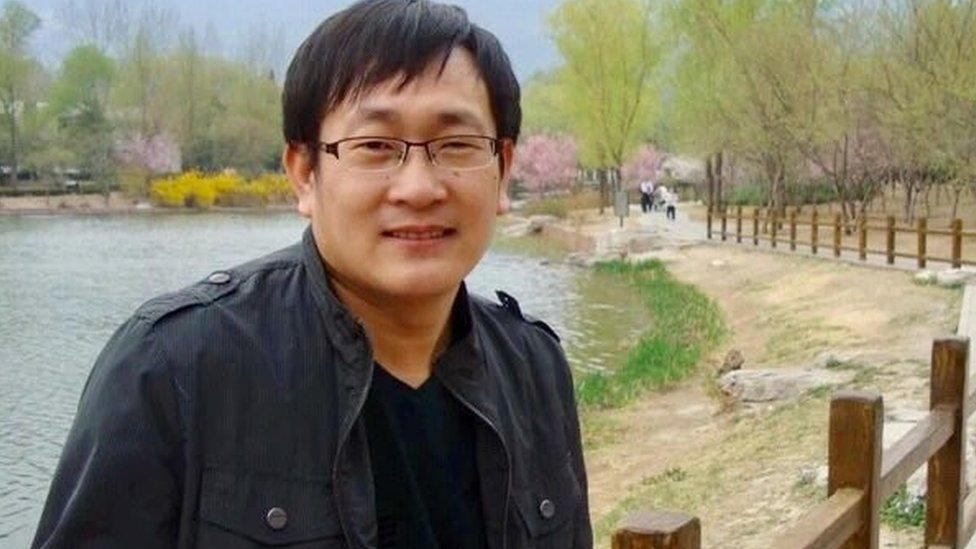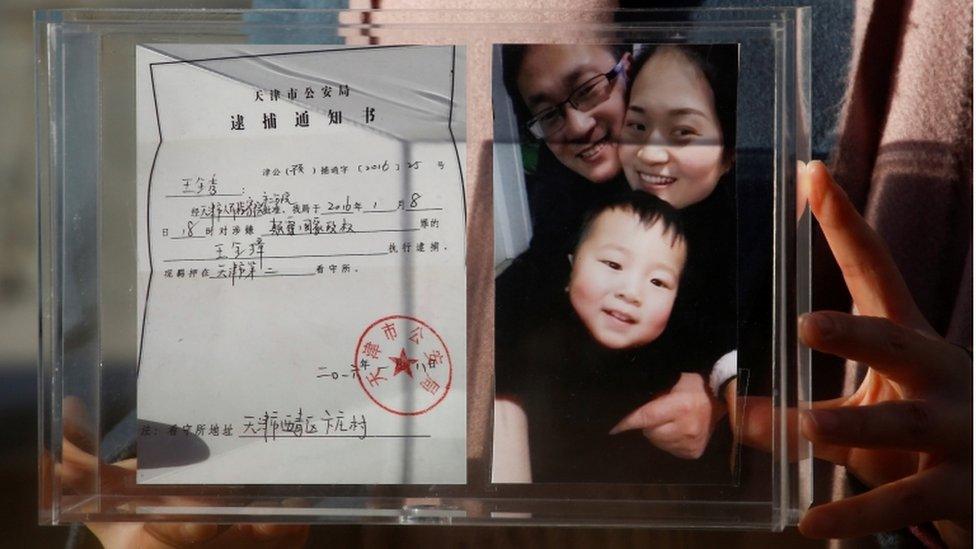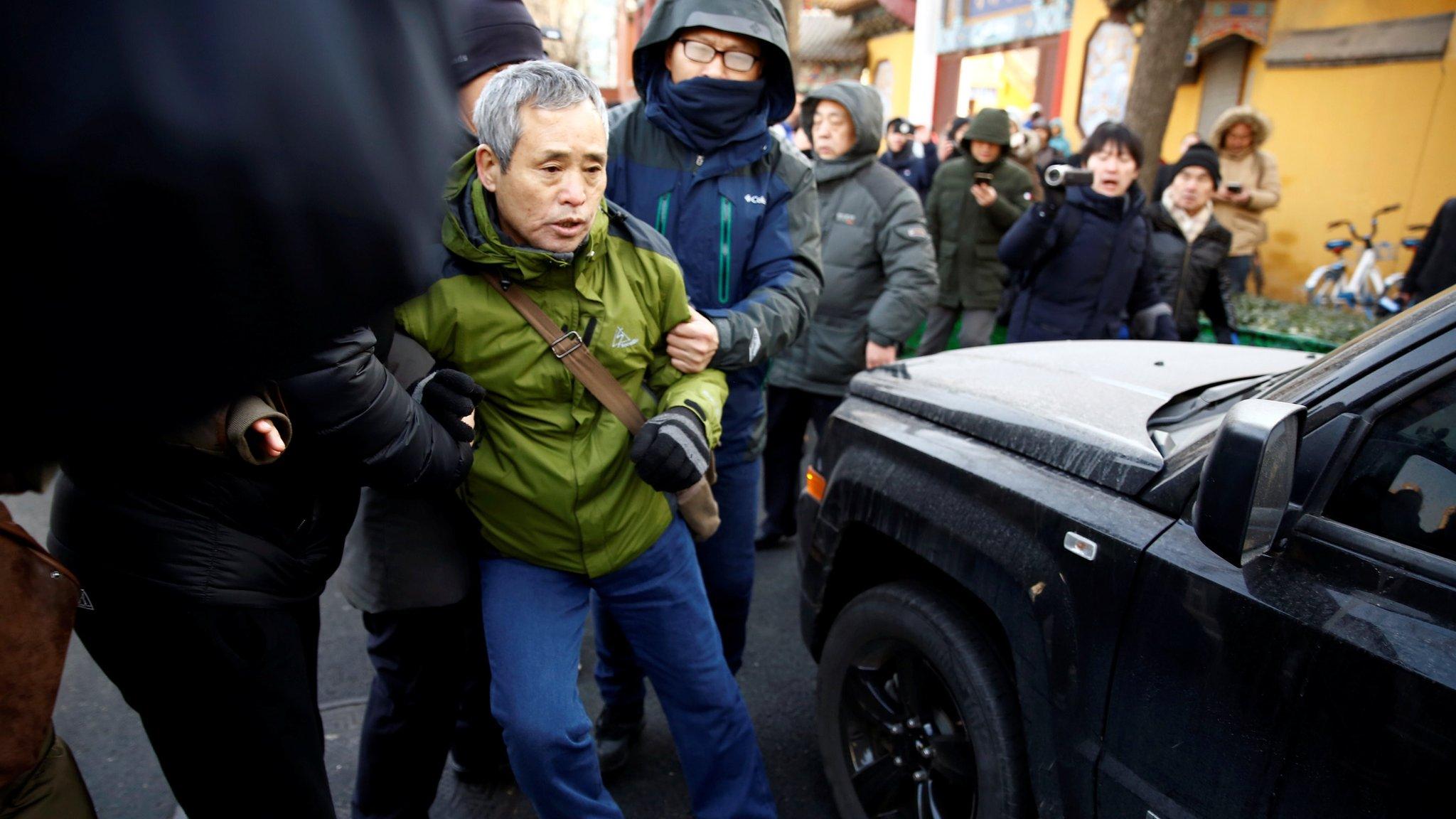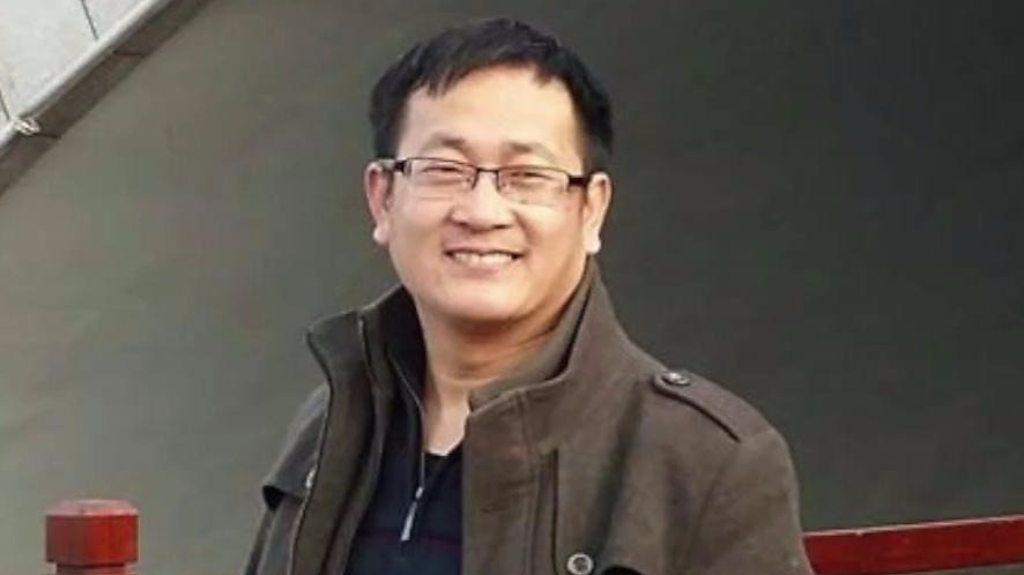Wang Quanzhang: China jails leading human rights lawyer
- Published

Wang Quanzhang went missing in a 2015 crackdown
China has sentenced prominent human rights lawyer Wang Quanzhang to four and a half years in prison for state subversion.
Wang, 42, had defended political campaigners and victims of land seizures, as well as followers of the banned spiritual Falun Gong movement.
He was one of several lawyers and activists arrested in a 2015 crackdown, and the last to go on trial.
China has intensified its prosecution of rights lawyers in recent years.
Mr Wang was "found guilty of subverting state power, sentenced to four years and six months in prison, and deprived of political rights for five years," the court in Tianjin said.
The trial had been conducted behind closed doors with journalists and foreign diplomats barred from entering the courthouse.
Reuters news agency reports that Wang fired his state-appointed lawyer during the proceedings.
Wang's wife, Li Wenzu, was also banned from attending and confined to her home in Beijing. A tireless champion of his case, she has shaved her head in protest against his detention and files near-weekly petitions to China's highest court.
Wang's wife and her friends shave their heads to protest against his detention
In April, police intercepted Ms Li after she began a 100km (62 mile) march calling for her husband's release. She was forcibly returned to Beijing and placed under temporary house arrest with her five-year-old son.
After the verdict Ms Li tweeted: "Wang Quanqi is not guilty, the public prosecution law is guilty!"

'A chilling message'
John Sudworth, BBC News, Beijing
Wang Quanzhang had disappeared so completely into a legal black hole, that for much of the past three and half years, his family did not know if he was alive or dead.
He was denied family visits and denied the right to appoint his own lawyer.
Perhaps he'd been seriously injured, those who knew him wondered. Or perhaps, against all the odds, he was somehow managing to hold out - refusing the pressure, and perhaps the torture too, and refusing to confess.
Other lawyers caught up in the same 2015 crackdown, have since been processed, convicted and sentenced.
Whatever the reason for the delay in Mr Wang's case - his brief one-day trial was finally held behind closed doors over Christmas - he has been found guilty for much the same reason; his attempts to use the letter of the Chinese law to hold the authorities to account in their own Communist Party-run courts.
As the Party has been making clear in recent years, it sees concepts such as constitutionalism and an independent judicial system as dangerous Western ideals.
Mr Wang's fate is likely intended to reinforce that chilling message.

Michael Caster, researcher and author of The People's Republic of the Disappeared, told the BBC that Wang's case was "emblematic of Xi Jinping's assault on the human rights and legal community".
"The rights defence and broader civil society community in China is rightly outraged. For some time now they have rallied around Wang Quanzhang and his wife Li Wenzu as symbolic of both abuse and resistance under Xi Jinping," he said after the sentencing.

Li Wenzu holds a family picture, and her husband's detention notice
Mr Caster said that "the UN Working Group on Arbitrary Detention has found that Wang's detention is arbitrary, which means that under international law he should never have faced a trial in the first place, and so obviously should never have faced any length of sentence".
Rights groups have condemned the trial with Amnesty International calling it a "sham" and the verdict "a gross injustice".
"It's outrageous that Wang Quanzhang is being punished for peacefully standing up for human rights in China," Amnesty China researcher Doriane Lau said in a statement.
China's crackdown on lawyers, known as the "709" crackdown because it began on 9 July, has been seen by activists as a sign of a growing intolerance of dissent under President Xi Jinping.
More than 200 people were detained in that sweep, with many given jail terms, suspended sentences or house arrest.
- Published22 May 2017

- Published26 December 2018

- Published10 July 2018
